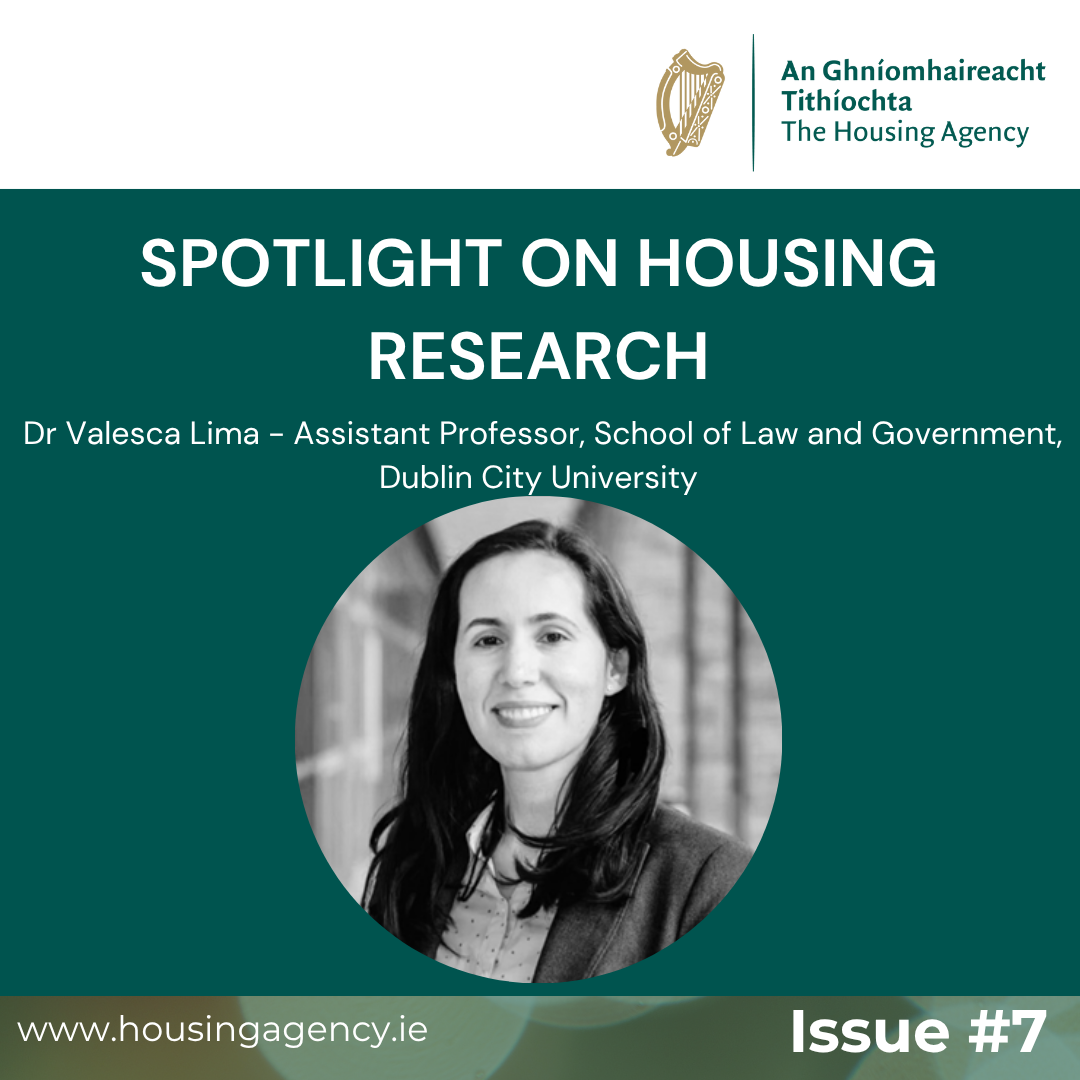July 2025
Dr Valesca Lima is an Assistant Professor of Politics at the School of Law and Government. She researches policymaking and governance with three main areas of interest: citizen participation, housing policy, and social mobilisation. Her recent research has been funded by the Irish Research Council, Science Foundation Ireland and Erasmus+, on projects relating to housing justice in Ireland and Portugal, as well as barriers to access to affordable housing, citizen participation and social mobilisation. Her work in the field of housing and urban studies focuses on the financialisation of housing, struggles for housing rights, and policy innovations for a more democratic and inclusive housing system. Additionally, her work emphasizes citizen inclusion at the sub-national levels, especially in contexts where participatory democracy is being implemented. Dr Valesca Lima also works on the interconnections between political participation of vulnerable groups and have an ongoing interest in democratic innovations in Ireland, Latin America, the EU and beyond.
My current research focuses on the design of housing policy interventions linked with resilience and adaptation to climate change. Specifically, the Sustainable Homes Integrating Non-intrusive Environmental Sensors (SHINE) project aims to develop environmental sensors for social housing. It is funded by Research Ireland/Science Foundation Ireland.
Why is this research important?
Research on housing justice clearly shows that housing insecurity leads to poor health outcomes, reduced educational attainment for children, and perpetuates cycles of poverty. We believe that the adoption of our solution in the built environment is well-aligned with sustainability principles by promoting energy efficiency, occupant health, and the longevity of homes.
Have you come across any challenges in carrying out this research?
The main challenges for any housing research in Ireland are the availability of data. The data available is often highly aggregated or not available at all. The housing data ecosystem in Ireland, dispersed across several sources, makes it challenging to accurately interpret what is happening. Accurate, timely, and transparent data is a useful tool to improve indoor air quality, energy use and well-being in the social housing sector.
How can this research be used to influence housing policy or practice?
It can support policymakers in designing housing policy, highlighting the importance of inclusive decision-making. Policies developed without the input of those most affected by it often fail to address their needs, leading to unsustainable or unjust outcomes. This necessitates just transition policies in housing that ensure wellbeing and environmental improvements genuinely benefit people. The research will contribute to creating more sustainable and environmentally conscious built environments that improve community resilience.
What is an interesting piece of housing research you have read recently? Irish or international.
Three pieces actually: there’s a very interesting new book, which is open access, called 'Citizen Participation in Sustainable Urban Development'. This focuses on citizen engagement in urban development, such as in housing regeneration programs. I liked it because it focused on the Nordic countries, which are often mentioned as a model for housing and urban policies, but they do face many challenges, and those come across well in this book. The other piece is a report by the Economic and Social Research Institute (ESRI), ‘Profiling short-term let usage across Ireland’, which examines the impact of home sharing platforms such as Airbnb and the impact of regulations in other countries. The Housing Agency report, ‘Supporting Sustainable Communities: The Successful Provision of Infrastructure in Cherrywood’, also caught my eye recently as it shows an interesting blueprint on how compact growth can look like in real-life.
Further links:
Migrant Housing Needs | The Housing Agency